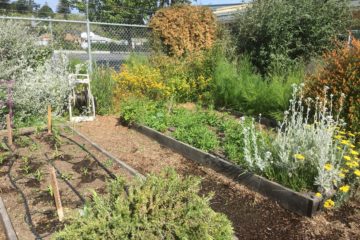This September, in honor of National Organic Harvest Month, many food retailers, co-ops, and communities are celebrating the benefits of organic foods by hosting many special events. Of course, this is also the time where general community members can also join in on the festivities! One of the first things you should know about this month is the simple question of what organic foods are in the first place, and what benefits they can serve for you.
So, what are organic foods in the first place? Typically, produce is organic when the specific way it is grown and processed is done without the usage of pesticides, GMOs, and petroleum based fertilizers. So, using natural fertilizers like manure and compost, hand weeding weeds, and using other natural methods like birds/insects or natural pesticides to control pests is a necessity for the production of organic produce. For livestock to be considered organic, they must be given organic food and be given access to the outdoors to roam, and must not be given any antibiotics, growth hormones, or other animal by-products to consume. Livestock must also have their diseases prevented using natural methods like a healthy diet in order for it to be organic.
There are also many benefits that come with using and eating organic foods. Two large factors that can be taken into account is the betterment of one’s own mental and emotional health when eating organically, as well as helping the environment in the process. Often times, organic food is much more fresh than your average conventionally grown foods, since it doesn’t include any preservatives. Of course, the environment also benefits from organic farming, since it reduces pollution, conserves water, reduces soil erosion, naturally increases soil fertility, and conserves lots of energy. Organic livestock and meats also contain nutrients that conventionally farmed livestock doesn’t have, such as omega 3 fatty acids, and is GMO free. Along with not using antibiotics and letting livestock roam free, organic meats are a very wise choice for someone that is trying to eat a healthier diet. These are just some of the benefits in choosing organically grown produce and foods.
However, organic foods aren’t usually that cheap. These types of foods can run your wallet out a bit more extensively, but this is no surprise since growing organically is very labor intensive. Some ways you can try to get cheaper organic foods is by shopping at a food co-op, a Community Supported Agriculture (CSA) farm, or your local farmer’s market. These options can offer lower prices and can often times offer produce and foods that are both organic and locally grown!
Hopefully the tips and information here can encourage you to try going organic for this month, in honor of National Organic Harvest Month!
Sources:
Written by Brenton Cai, Landscape Designer



1 Comment
Brianna L Banks-McLean · September 15, 2020 at 8:02 pm
Love this! Keep up the good work guys!